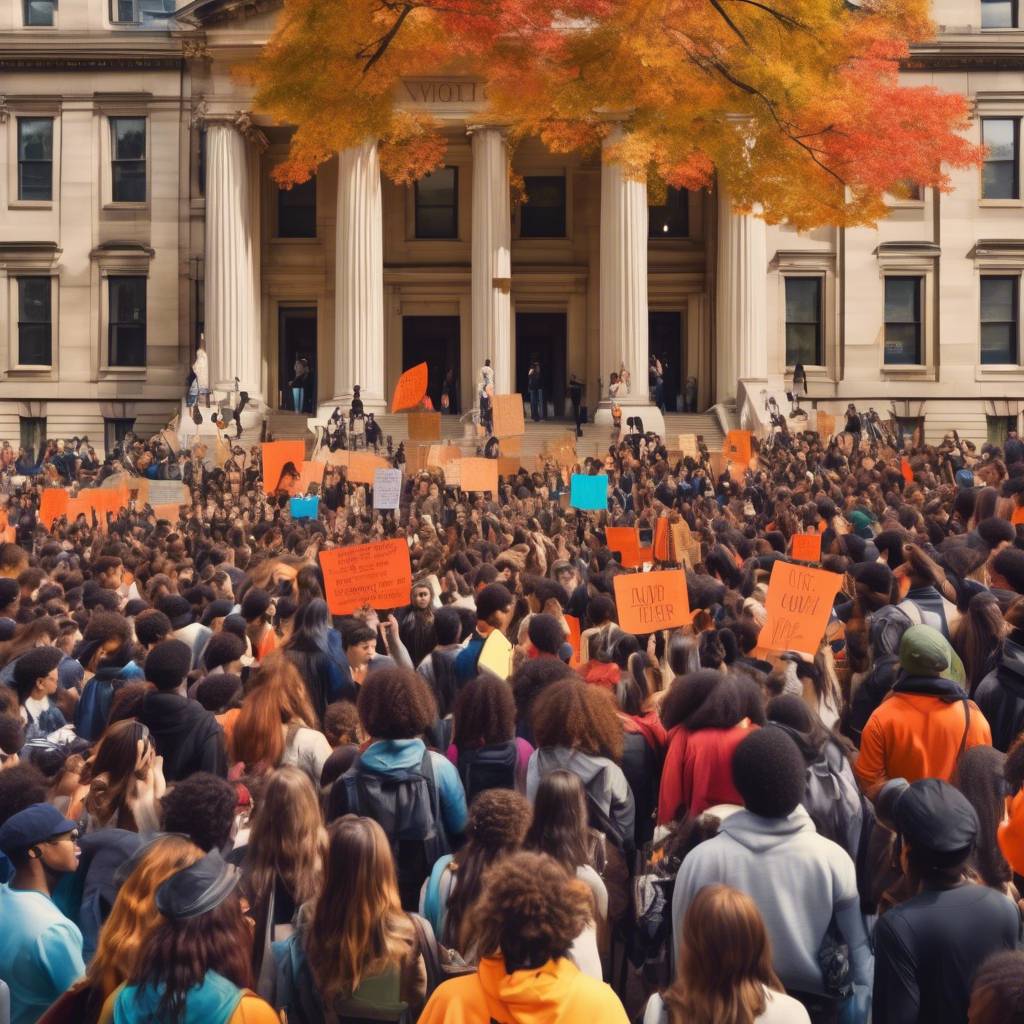Over the past week, pro-Palestinian student groups at Columbia University have been demanding that the school withdraw investment funds from companies profiting from Israel’s military action in Gaza. Columbia’s endowment, managed by a university-owned investment firm, is worth $13.6 billion. The coalition behind the movement, known as Columbia University Apartheid Divest, has called for divesting endowment funds from weapons manufacturers and tech companies that do business with Israel’s government, accusing these companies of profiting from “Israeli apartheid, genocide, and military occupation of Palestine.”
Columbia has a history of student activism dating back to the 1968 student occupation of multiple campus buildings to protest the Vietnam War. In 2000, the university established an advisory committee on socially responsible investing, which has a formal process for submitting divestment proposals. The Columbia University Apartheid Divest group submitted a formal proposal in December to withdraw investments related to Israel, but the request has not been successful. Despite this, students at Columbia College voted to support the divestment proposal last week, and student organizers continue to push for the university to adopt the proposal.
Columbia has a history of divesting from controversial investments, with decisions made in the past decade to refrain from investing in tobacco, private prison operations, thermal coal, Sudan, and fossil fuels. In the 1980s, students led a movement to push Columbia to divest from companies doing business in South Africa over apartheid policies. The university trustees initially rejected the proposal but later voted to sell the majority of Columbia’s stock in American companies doing business in South Africa in response to student demonstrations.
In 2015, Columbia became the first Ivy League university to divest from private prison companies following a student activist campaign. The university sold shares in G4S and Corrections Corporation of America following concerns about human rights abuses. In 2019, students affiliated with the climate activism group Extinction Rebellion staged a hunger strike to push the university to divest from thermal coal and eventually all fossil fuels. Despite pushback from university leaders, a formal divestment proposal was presented to the socially responsible investing committee.
The fossil fuel divestment proposal was approved by Columbia’s Board of Trustees in early 2021, marking a significant victory for student activists. By using divestment as a symbolic goal, student activists aim to inspire change and encourage other institutions to make similar commitments. Michael Cusack, who was involved in the 2019 hunger strike, emphasized the importance of support and buy-in from the wider community in transforming institutions like Columbia University. The success of past divestment campaigns at Columbia demonstrates the power of student activism in holding the university accountable for its investments and advocating for social justice causes.









